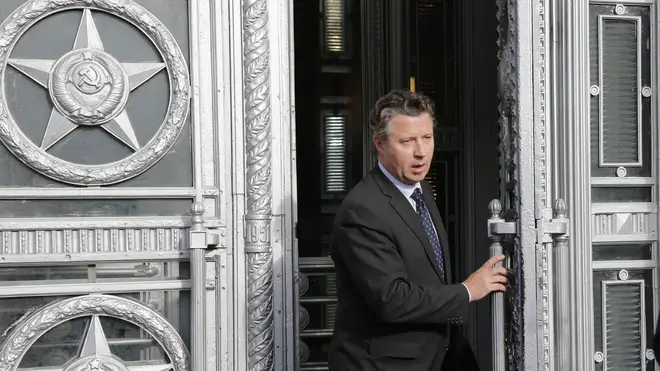
Oli Dugmore 4am - 7am
11 September 2020, 07:54

Moscow’s ambassador has demanded evidence a Soviet-era nerve agent from the Novichok group was responsible.
Russia has clashed with Germany and five of its Western allies over the poisoning of Kremlin critic Alexei Navalny.
The confrontation came at the monthly UN Security Council meeting on chemical weapons in Syria, with the United States, Belgium, Britain, Estonia and France expressing grave concern at Germany’s determination the 44-year-old was the victim of a chemical weapons attack.
Moscow’s ambassador has demanded evidence a Soviet-era nerve agent from the Novichok group was responsible and Germany’s envoy said his country’s findings have been handed over to the international chemical weapons watchdog.
Britain’s acting UN ambassador Jonathan Allen said a similar nerve agent was used “with lethal effect” in southern England in 2018 on former Russian spy Sergei Skripal and his daughter.

A woman, Dawn Sturgess, exposed to the contents of a perfume bottle reportedly used in the attack died several months later.
Russia vehemently denied any involvement, but Britain has charged two men it called Russian military intelligence officers with the nerve-agent poisoning.
Mr Allen told the council the United Kingdom stands with Germany’s findings on Mr Navalny and called on Russia to “urgently conduct a full and transparent investigation into this use of a banned chemical weapon” and to uphold the Chemical Weapons Convention that bans their use.
Acting US deputy ambassador Cherith Norman Chalet called Mr Navalny’s poisoning by a chemical weapon “completely reprehensible” and urged Russia “to be fully transparent and to bring those responsible to justice”.
Mr Navalny, the most visible opponent of Russian President Vladimir Putin, fell ill on a flight to Moscow on August 20 and was taken to a hospital in the Siberian city of Omsk after the plane made an emergency landing.

He has since been flown to Germany for treatment.
German scientists concluded that “without doubt” Mr Navalny was poisoned by a Novichok agent.
The German hospital treating him said on Monday his condition had improved, allowing doctors to take him out of an induced coma.
Russia’s UN ambassador Vassily Nebenzia told the Security Council that “we are the most interested party to know what happened” and Moscow wants Germany to share its evidence.
He said the Russian doctors who saved Mr Navalny’s life found no “chemical weapons substances”.
Mr Nebenzia cited an request from Russia’s prosecutor to Germany made on August 27 for information under a Russian-German agreement, which has had no response.
“If you demand explanations, put the facts on the table and we’ll compare notes,” he said. “Why should we trust allegations uncorroborated by evidence?
“This whole incident cannot but raise questions about some foul play being staged,” Mr Nebenzia added.
Germany’s Defence Ministry has said the data about Mr Navalny has been provided to the Hague-based Organisation for the Prohibition of Chemical Weapons (OPCW), which implements the Chemical Weapons Convention.
Stressing that point, Germany Ambassador Christoph Heusgen accused Russia of using “another smoke screen” and said Mr Navalny’s poisoning is not an issue between Germany and Russia but “an issue of international concern” about chemical weapons use.
Germany “is doing what it is supposed to do under the Chemical Weapons Convention” by giving all the evidence to the OPCW, Mr Heusgen said.
“And it would be very good if Russia would work with OPCW in finding all the background to the case of the use of Novichok,” he added.